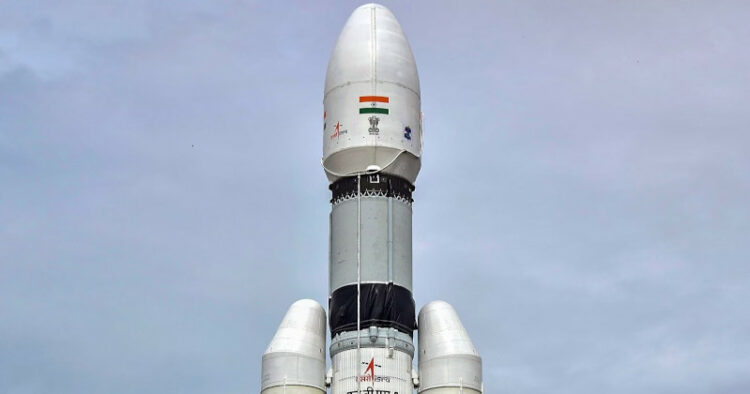Director of Indian Space and Research Organisation (ISRO), S Somanath, has announced that the Chandrayaan-3, India’s planned third lunar exploration mission, will be launched on July 14 at 2.35 pm.
The ISRO chief made the remark on Day-1 of the Space Economy Leaders Meet held in Bengaluru on July 6 as part of India’s G20 Presidency. The meeting saw a discussion on the possibilities of bilateral partnership in sharing space economy. On the launch of Chandrayaan-3, Somanath said, “On July 14 at 2.35 pm, Chandrayaan-3 will lift off and if everything goes well, it will land (on the moon) on August 23…the date is decided based on when is the sunrise on the moon, it will depend on the calculations, but if it gets delayed then we will have to keep the landing for the next month in September.”
He also said ISRO’s prime objective was to enable a safe and soft landing of Chandrayaan-3.
Stating that Isro was confident of successful soft-landing this time, Somanath reiterated some of the changes carried out on the lander to achieve this.
“Our main objective is safe and soft landing, all equipment will be fine if it goes safe and there is a soft landing. We are good with the landing system. Rover will come out after landing, rover has 6 wheels, and we are expecting the rover will work for 14 days on the moon…With the support of multiple cameras on the rover we will receive images. We have a solar panel on the rover. We already tested it, and we have good results with the battery,” Somanath added.
The ISRO chief also informed that partnerships between space agencies, industries, and start-ups were discussed in the meeting.
On the challenges in the space economy, he said, “Challenges in the space economy, first and foremost, is it is capital intensive. So you have to invest heavily to create the capability. And the return of investment comes very late.”
Representatives from 86 space companies took part in the meeting.
India’s G20 sherpa, Amitabh Kant said India’s space economy was experiencing rapid growth with increasing revenue and more commercial actors entering the sector. He added that studies suggest it could become a USD 1 trillion sector in the coming decades.
“This exponential growth necessitates support from governments worldwide. That’s why we are discussing space as a formal element within the G20 meeting,” Kant said.
MoS, Ministry External Affairs, Rajkumar Ranjan Singh, said India has more than 400 private space companies working to harness this sector.
“We also have a student outreach programme. This programme is designed to cultivate scientific temper among young minds. Space technology can bring immense predictability to the varieties of climate changes, agricultural harvest, food security, natural disasters, and even the distribution of economic drought. These uncertainties unfold the worst impact on developing countries,” Singh said.
Day-1 of the Space Economy Leaders Meet saw participation from 27 countries and 33 industries.
It showcased India’s industry capabilities in the space sector. On the concluding day, there will be a session on Space Industry partnership.
(with inputs from ANI)




















Comments